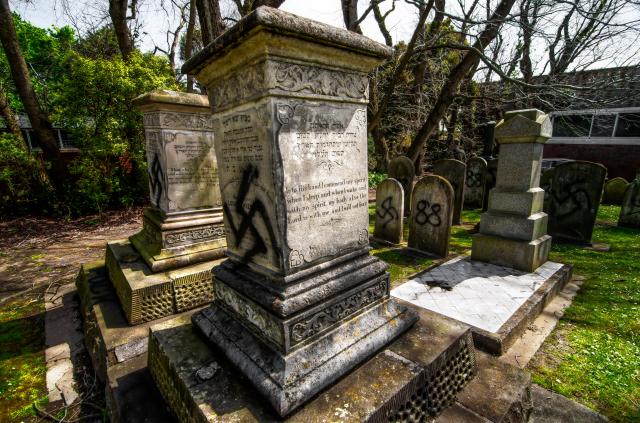
Jewish Lives | Anti-Semitism Paul Spoonley
Historian Robert Wistrich calls anti-Semitism the world’s longest hatred. New Zealand is not immune from it, but it has been much less prominent here than in Europe. Below is an excerpt taken from Paul Spoonley's Anti-Semitism chapter from Jewish Lives in New Zealand: A History, by Leonard Bell and Diana Morrow, published by Random House in 2012.
This is partly because of the histories of the much smaller local Jewish communities. There are also few conspicuously visible religious groups, such as ultra-orthodox Hasidim in New Zealand. This combination of small communities and a relatively tolerant political climate meant that Jewish business and professional people became accepted as part of the country’s Anglophile elite.
Nevertheless, there has been anti-Semitism, ranging from the conspiracy theories of an early-20th century Social Credit movement to the later neo-fascism; from some high-profile debates about academic research to the conflation of anti-Semitism with anti-Zionism.1930s New Zealand provided the most explicit examples of a political anti-Semitism. While there were no significant fascist movements, local anti-Semitism was espoused by individuals, such as R.N. Field and later Eric Butler and R.A. Lochore, whose From Europe to New Zealand: An Account of Our Continental European Settlers was published by the Department of Internal Affairs, and a political party, Social Credit, and its offshoot, the League of Rights. Their ideas about a Jewish financial conspiracy received some acceptance among New Zealanders, including a few politicians, such as John A. Lee. Groups such as Social Credit and the League of Rights kept anti-Semitism alive through mid-century New Zealand, although their influence gradually waned, and by the late 1970s was largely irrelevant. Social Credit was particularly interested in monetary reform. The movement’s anti-Semitic arguments that emerged by 1933 were present until 1984, when then-leader Bruce Beetham finally ejected those still holding views about an international Jewish conspiracy. The League of Rights’ anti-Semitism was well-known by the late 1970s. It believed that ‘race’ was the basis of a nation and that ‘One of the most dangerous of the ...myths in the world today is that “all races are equal”’. The League repeated the absurd belief in an international Jewish conspiracy seeking financial control of the world; an agenda set out in the forgery, Protocols of the Learned Elders of Zion.
While there were some local Nazi sympathisers during and post World War II, New Zealand did not have fascist organisations, perhaps because immigrants were mostly from Britain and Ireland. Organised local fascism began in the 1960s, when the National Socialist White People’s Party was formed. The most conspicuous branch was that of Auckland’s, with Colin King-Ansell as its organiser. Small neo-Nazi groups sprung up through the 1990s, engaged in offensive and sometimes violent behaviour, gained media attention and then disappeared. Since the late 1970s there have been periodic attacks on Jewish gravestones and Jewish buildings. In 2004, damage to 111 headstones at Makara and Bolton Street cemeteries in Wellington and a less publicised attack on Auckland’s Karangahape Road Jewish cemetery led to a motion in Parliament deploring this form of racism.
A more complex aspect of contemporary anti-Semitism its the conflation with anti-Zionism. It is important to distinguish criticism of Israel from anti-Semitism, though anti-Zionism can be anti-Semitic. The use of the Protocols of the Learned Elders of Zion by some opponents of Israel clearly represents a merging of anti-Semitism and anti-Zionism.
Image header (above): Jewish Grave desecration at Grafton Cemetery, 2012, Karangahape Road, Auckland. Photograph by Zahn Trotter, reproduced here with kind permission.

